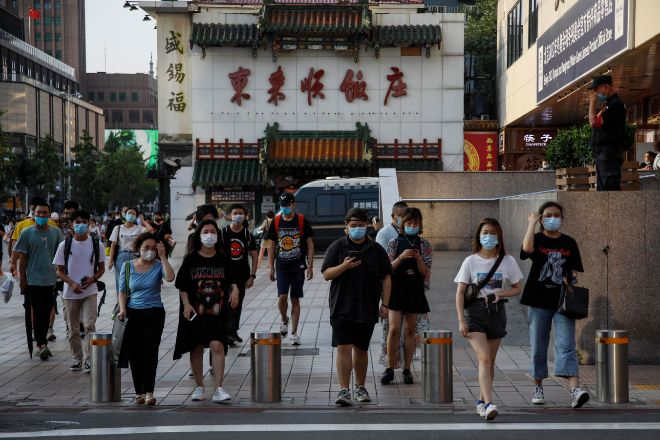
China assured today that “there are no risks of deflation” in the country “neither now nor in the future” after announcing last week that the consumer price index (CPI) entered negative territory by falling 0.3% year-on-year in July .
“There are no risks of deflation in China now or in the future,” said Fu Linghui, a spokesman for the National Statistics Office (ONE), who nevertheless acknowledged that the country’s economic recovery “faces several challenges.”
The July rate was 0.3 points below that of the previous month, and represented the first contraction in the CPI since February 2021.
The ONE statisticians believe that the fall in the CPI is “a temporary matter”, and they have expressed that they expect it to recover gradually with “a sustained expansion of market demand” or “the progressive elimination of the effects of the high comparative base from last year”.
“Domestic demand has continued to grow. Consumption of services, such as those derived from summer vacations, is already rising, offering significant support,” Fu said today.
However, the ONE reported that retail sales, a key indicator to measure the state of consumption, increased by 2.5% year-on-year in July, a lower figure than the 3.1% reached in June and which remains below what expected by the experts, who advanced that it would increase by 4.6%.
China lowers interest rates to encourage purchases
Meanwhile, the People’s Bank of China (PBOC, central) announced on Tuesday a cut of 15 basis points in medium-term loan facilities (MLF) to “maintain reasonable liquidity in the banking system and meet the needs of financial institutions.”
The PBOC injected 401 billion yuan (about US$55.42 billion) into the market through a one-year MLF with an interest rate of 2.5%, down from 2.65% previously.
MLFs are a central bank tool to finance commercial banks and guide benchmark interest rates, and when they are lowered, it means the cost of lending money to banks is reduced.
The measure, reported today by the state agency Xinhua, is part of the government’s efforts to “strengthen the countercyclical adjustment and stabilize market expectations.”
Likewise, the BPC also announced the injection of 204,000 million yuan (US$28,049 million) through reverse repurchase agreements (also known as ‘repos’, an instrument by which securities are sold conditional on an agreement to repurchase them at a later date ) with an interest rate of 1.8%, below the previous 1.9%.
The measure comes on the same day that the country’s industrial production data was released, which grew by 3.7% year-on-year in July, a figure that represents a slowdown compared to the June data (4.4%).
Source: Larepublica
Alia is a professional author and journalist, working at 247 news agency. She writes on various topics from economy news to general interest pieces, providing readers with relevant and informative content. With years of experience, she brings a unique perspective and in-depth analysis to her work.











